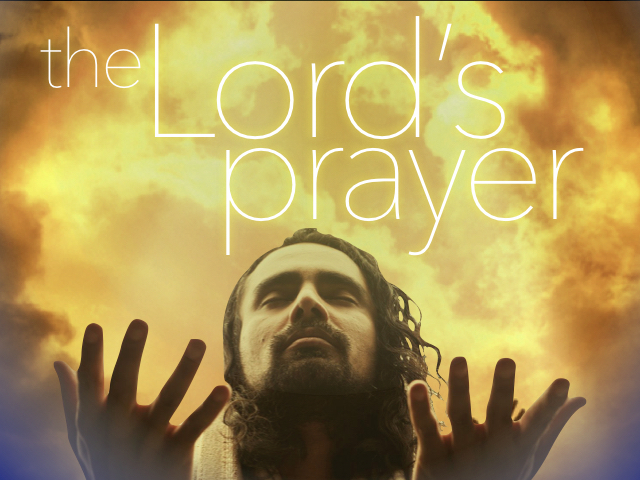
Matthew 6.9,
Luke 11.2.
In the Lord’s Prayer, Jesus told us to ask our Father to ἁγιασθήτω τὸ ὄνομά σου/ayiasthíto to ónoma su, “sanctify” or “make holy” or “hallowify” (to coin a word) “the name of yours.”
- Matthew 6.9 KWL
- “So pray like this yourselves²:
- Our Father who’s in the heavens!
- Sanctify your¹ name.”
- Luke 11.2 KWL
- Jesus tells them, “When you² pray, say: ‘Father!
- Sanctify your¹ name.
- Bring your¹ kingdom.’ ”
The Book of Common Prayer and KJV went with “Hallowed be thy name,” which means the same thing, but Christians commonly misinterpret it to mean “I sanctify your name,” or “I praise your name.” We think this is praise and worship on our part. It’s not. It’s a request for our Father to make his own name holy. For him to act.
Part of our presumption comes from a way-too-common Christian misbelief that our prayers aren’t really about asking God to do anything. Because, the attitude is, God doesn’t actually answer prayer. He sits on his heavenly arse, watches us humans stumble around, reminds us to read our bibles, but he isn’t gonna intervene in human affairs till the End Times—if they even happen in our lifetime. Besides, he’s pre-planned everything he’s gonna do, so all our after-the-fact prayers won’t change a whiff of it. So what’s the point of prayer then? Changing us—changing our attitudes about God by reciting various truths about him, like we do with our worship music, until these ideas finally sink in and transform us.
(As if this even works with worship music. Just look at all the Christian jerks who sing and listen to plenty of worship songs, but who are just awful to other people. But lemme stop here before I rant futher.)
Thanks to this mindset, Christians imagine “Hallowed be thy name” is just another reminder to think of God as holy, and his name as holy. To not take it in vain. To glorify and worship him, and tell other people how awesome and mighty he is. And because we so often misdefine holy as good, to also remember God is good. Or because we so often misdefine holy as solemn, to remember to treat God formally.
We really do botch the meaning of what Jesus is trying to teach us in this prayer, don’t we? It’s why Christians can recite the Lord’s Prayer the world over, sometimes every single day, and still not behave any more like Jesus than before.
So to remind you: Holy describes something that‘s distinctly used for divine purposes, and therefore not like anyone nor anything else. It’s unique. It’s weird. Good-weird, not weird for weirdness’ sake; not twisted, not evil-weird. When we pray for God to make his name holy, we want him to not be like any other higher power, any other mighty thing, any other force in the cosmos, any other god. We want him to stand out. ’Cause he’s not like anything or anyone else. He’s infinitely better.
Now. Does recognizing the Lord’s Prayer is about actually asking God for stuff, and that it’s not merely about changing our own attitudes, mean our attitudes don’t need to change? Of course not. If we want God to make his name holy, part of that means we need to make his name holy too. Stop treating God as if he’s just anyone else. He’s not.
And no, I absolutely do not mean we should treat him more formally, more solemnly, with more ritual and ceremony and gravitas and all that crap we do to suck up to insecure authority figures. God’s uniqueness is reflected by two things about him: He’s almighty, of course. But more importantly, more relevantly to us, his character: He’s infinitely good. Infinitely gracious. He infinitely loves us. Has infinite patience with us. He’s infinitely kind. Infinitely faithful. He’s not like anyone else because, unlike everyone else, he’ll never, ever fail us.
So don’t put him on the same level!



